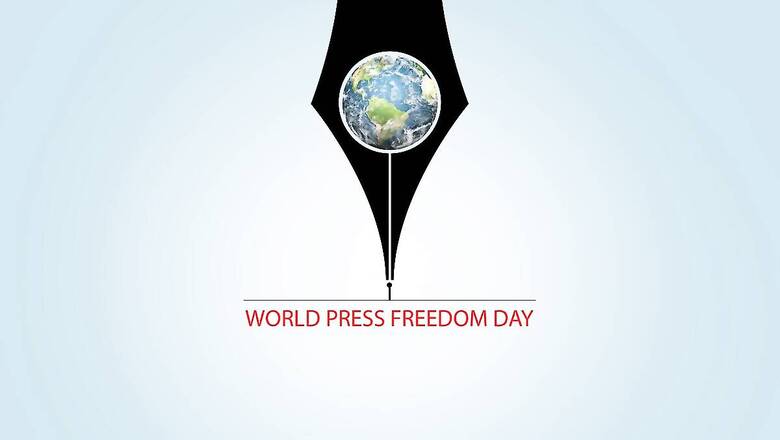
views
Hailed as the fourth pillar of democracy, the press – its reporters, editors and photographers – have always risked their reputations and lives for the truth behind events. Such tasks require a degree of freedom which is guaranteed by the constitutions of democratic nations and the Universal Declaration of Human Rights. To celebrate the forthcoming World Press Freedom Day on May 3, this year, we take a look at its origin, meaning and importance below.
History
It was in the year 1993 when the United Nations General Assembly declared May 3 as the World Press Freedom Day. This declaration came after a recommendation made in 1991 at the twenty-sixth General Conference session of UNESCO. The declaration also came as a result of 1991 Windhoek Declaration; a statement which was produced by African journalists about press freedom, presented at a seminar held by UNESCO, which concluded on May 3.
Significance
The day is celebrated to ensure the protection and safety of the press in the face of attacks against its independence, to discuss journalistic ethics and to celebrate journalists who gave their lives in the pursuit of truth. There are ten nations – China, North Korea, Vietnam, Laos, Eritrea, Djibouti, Turkmenistan, Saudi Arabia, Syria, Iran and Cuba – where press freedom is severely limited. World Press Day remind us that many publications and their editors and reporters are often prevented from doing their jobs, censored and banned. Many get imprisoned or killed even.
Theme
The theme for World Press Day 2021 is “Information as a Public Good.” It is especially significant for the press, which deals with information on a global scale, to effectively use and disseminate it to the world citizenry while empowering journalists.
The three topics to be highlighted at this year’s World Press Freedom Day 2021 Global Conference, as per UNESCO are:
- Steps to ensure the economic viability of news media;
- Mechanisms for ensuring transparency of Internet companies;
- Enhanced Media and Information Literacy (MIL) capacities that enable people to recognize and value, as well as defend and demand, journalism as a vital part of information as a public good.
Read all the Latest News, Breaking News and Coronavirus News here. Follow us on Facebook, Twitter and Telegram.
















Comments
0 comment